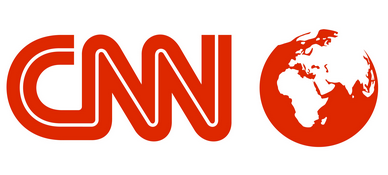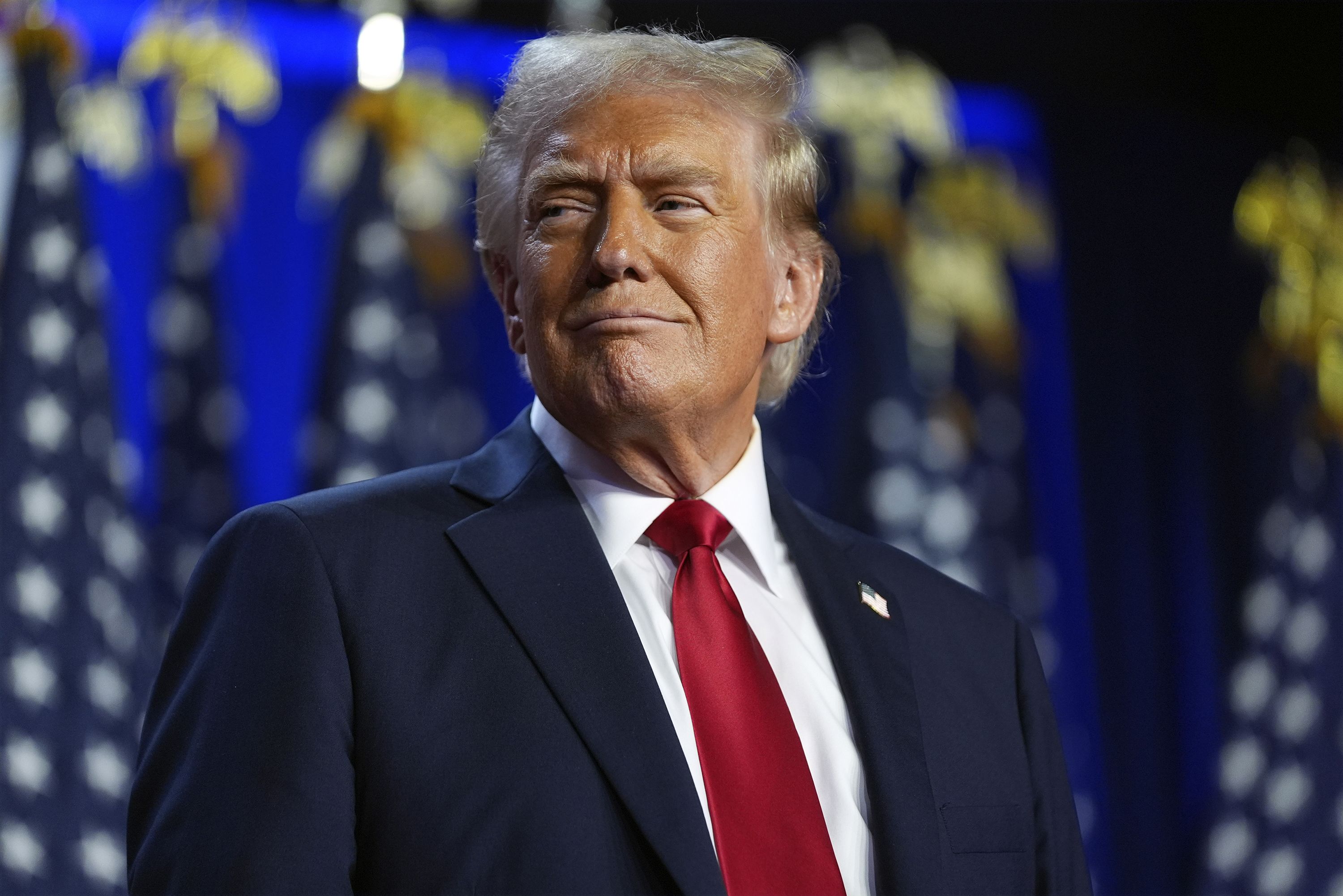
From the Website of CNN NEWS
links: https://edition.cnn.com/2024/11/07/politics/trump-total-power-second-term-analysis/index.html
Trump thinks presidents have near-total power: there will be little to stop him in his second term
The president-elect’s sweeping victory over Vice President Kamala Harris suddenly turned the theoretical notion that he will indulge his autocratic instincts into a genuine possibility.
When Trump returns to the White House in January as one of the most powerful presidents in history, he’ll be able to take advantage of his own filleting of guardrails during his first presidency, which he continued through legal maneuverings out of office.
It’s not guaranteed that just because Trump has massive power he will spurn constitutional checks and balances. His past behavior doesn’t have to predict the future. But the lesson of Trump’s business and political careers is that he seeks to obliterate all constraints.
He has, for instance, crushed opposition in the Republican Party and driven out political heretics who oppose his “Make America Great Again” creed. This will be increasingly significant since the GOP has already flipped the Senate and still hopes to complete a monopoly on Washington power by keeping the House, which CNN has not yet projected.
No other president has come into office armed with a Supreme Court ruling that grants significant immunity to presidents for official acts. The decision, a direct result of Trump’s effort to challenge his federal indictment for 2020 election meddling, is limited — but he is certain to take an expansive view of its meaning. The ruling emerged from a conservative court majority fashioned by Trump in his first term and that many legal observers now see as a rubber stamp on future power grabs.
A mandate
Perhaps most significantly, Trump can claim democratic legitimacy for what is already shaping up as the most intemperate presidency of the modern era, after increasing his vote share across multiple demographics. “Everybody knew this when they voted yesterday. So yes, the American people voted for basically this unchecked power that the president is going to have,” said former Republican Rep. Adam Kinzinger, who alienated himself from his party by standing up to Trump following the January 6, 2021, attack on the US Capitol.
Trump tried to destroy democracy to stay in power after the 2020 election. Four years later, he presented his platform to voters and won an Electoral College majority. He may also bolster his legitimacy by becoming the first Republican president to win the popular vote since 2004.
“America has given us an unprecedented and powerful mandate,” the former and future president said at his Mar-a-Lago victory party early Wednesday.
Trump has denied that he wants autocratic power, saying his claim he’d be a dictator on day one is a joke and that he is instead the savior of democracy.
Yet millions of Americans chose Trump after his extreme closing argument in which he proposed the biggest deportation operation in US history, mused about using the military against “enemies from within” and vowed to prosecute political opponents and expel Haitian refugees in Ohio who are legally in the country and whom he falsely accused of eating people’s pets.
Ignoring legal attempts to hold him to account
Trump’s willingness to wield unchecked executive power will not only be facilitated by his interpretation of the Supreme Court ruling on immunity. He has already subverted constraints on presidential authority. His two impeachments — over trying to coerce Ukraine with aid and the Capitol insurrection – didn’t rein in his impulses. And the Republicans’ refusal to convict him in the Senate showed the toothlessness of this crucial constitutional remedy when a political party has chosen to appease an extreme president in return for power.
In Trump’s first term, some Republicans sometimes hampered his agenda. The late Arizona Sen. John McCain, for instance, thwarted an attempt to overturn key provisions of the Affordable Care Act with his thumbs down vote. But Trump ally Rep. Marjorie Taylor Greene warned Wednesday that dissent would not be tolerated from GOP members. “I will not let them and neither will the American people who have given us this amazing opportunity to save this country,” the Georgia Republican posted on X.
Kinzinger scoffed at the idea that a GOP Congress would temper Trump. “On paper, it’s a real thing, in practice no,” the former Illinois lawmaker told CNN’s Dana Bash Wednesday. “There is no chance, 0.0% chance, that Donald Trump says something and Republicans in the House buck him anymore.”
Trump, by winning back the Oval Office, has also evaded the constraints of the law. So, in addition to having the Supreme Court’s immunity ruling in his back pocket, why would he be cowed by the possibility of future legal action against him?
Within hours of election night. Special counsel Jack Smith was already talking with the Justice Department about ending two federal prosecutions against Trump — over his efforts to subvert the 2020 election and his hoarding of classified documents — in line with Office of Legal Counsel curbs on prosecutions of sitting presidents. A state election meddling case in Georgia is now imperiled. And huge doubts also hang over the pending sentencing of Trump after a conviction in a hush money case in New York.
‘The danger is very real’
The scope for Trump to stretch historic interpretations of his executive power is immense.
“The danger is very real,” said Corey Brettschneider, professor of politics at Brown University, and author of the book “The Presidents and the People: Five leaders who Threatened Democracy and the Citizens who Fought to Defend it.” Brettschneider cited Revolutionary War hero Patrick Henry’s disquiet about the possibility that the office of the presidency was so powerful that an incumbent with authoritarian ambitions could ascend an “American throne.” While the founders modeled the presidency on the persona of George Washington, Brettschneider explained that Henry proposed this hypothetical: “What if a bad person gets in that office or even a criminal president? And his point is, you know, these supposed checks, because they assume a virtuous person, they’re pretty weak.” Now that America has a convicted felon as its president-elect — and one who has massive ambitions for his own power — that’s no longer a hypothetical.
Trump has plenty of models for his second term. He has frequently praised foreign autocrats like Russian President Vladimir Putin and China’s Xi Jinping, who face no democratic accountability. He admires the rule of his friend, Hungarian Prime Minister Viktor Orbán, who has eroded institutions of accountability, including government departments, the court system and the press. “Some people don’t like him because he’s too strong. It’s good to have a strong man at the head of a country,” Trump reflected at a rally in New Hampshire in January.
Trump’s conception of the presidency was encapsulated by his statement in July 2019 that the Constitution gave him untamed power. “I have an Article II, where I have to the right to do whatever I want as president,” he said. Article II lays out the duties of the presidency — but it does not, in conventional interpretations, at least, suggest blanket executive authority.
Trump’s attitude moved then-federal Judge Ketanji Brown Jackson to remark in a 2019 ruling, which ordered compliance by former White House counsel Don McGahn with a congressional subpoena, that “the primary takeaway from the past 250 years of recorded American history is that Presidents are not kings.”
It will take time to rein in Trump
So, are there any constraints?
The greatest inhibition to presidential overreach is the sitting president himself, who can chose to remain within bounds of accepted executive action. But self-restraint is a concept alien to Trump. This is not just a personal trait. Such conduct is endemic to his political appeal — and he was just elected by millions of voters who endorsed his promise to eviscerate a governing system that they believe has failed them. In the past, Trump has sometimes been loath to take steps that might make him politically unpopular — yet he will take office knowing he does not have to appeal to voters ever again since he’s in his second term.
The most effective clamp on Trump’s future power would be a Democratic House majority, which could challenge the new White House with the power of oversight — even if Trump has already mocked the ultimate sanction of impeachment. But with races still outstanding, Republicans are closer to the 218 seats needed for the majority than Democrats.
Then there are the courts. Activist groups are sure to lodge cases against Trump’s immigration moves, as happened over his ban on travelers from certain Muslim nations in his first term. Such maneuvers can tie up a president for months — although the scores of Trump-appointed judges and the conservative Supreme Court majority may give the administration reprieves.
Attempts to prosecute Trump’s political foes on spurious grounds, meanwhile, could theoretically see mass resignations of Justice Department staff. This is one reason why the new administration may roll out plans to sack entire echelons of the civil service to ensure total loyalty to the new president. And the former president is unlikely to make his first-term mistake of appointing officials who confront him – like former chief of staff John Kelly and former Defense Secretary Mark Esper.
Brettschneider argues in his book published this year that an authoritarian president would not present a hopeless situation for US democracy. He examines five commanders in chief who threatened democracy and shows how they spawned protest movements, citizen activism and eventually democratic victories that created restorative presidencies.
Still, such responses can’t often halt presidential acts in their commission, meaning that the fate of the country and its democracy often hinges on the president himself. The founders were “sitting there in the Constitutional Convention and looking at Washington, and they thought to themselves, ‘this is a person of virtue. That’s who they had as a model in mind,’” Brettschneider said. “When you have somebody who’s not a model of virtue, they can really wreak havoc.”
CNN Website
Article Link
OTHER HUMAN RIGHTS PROMOTIONS WEBSITE
-------------------------------------------------------------------------------------
THE GLOBAL WORLD PROMOTIONS
-------------------------------------------------------------------------------------
---------------------------------------------------------------------------
------------------------------------------------------




































0 comments:
Post a Comment